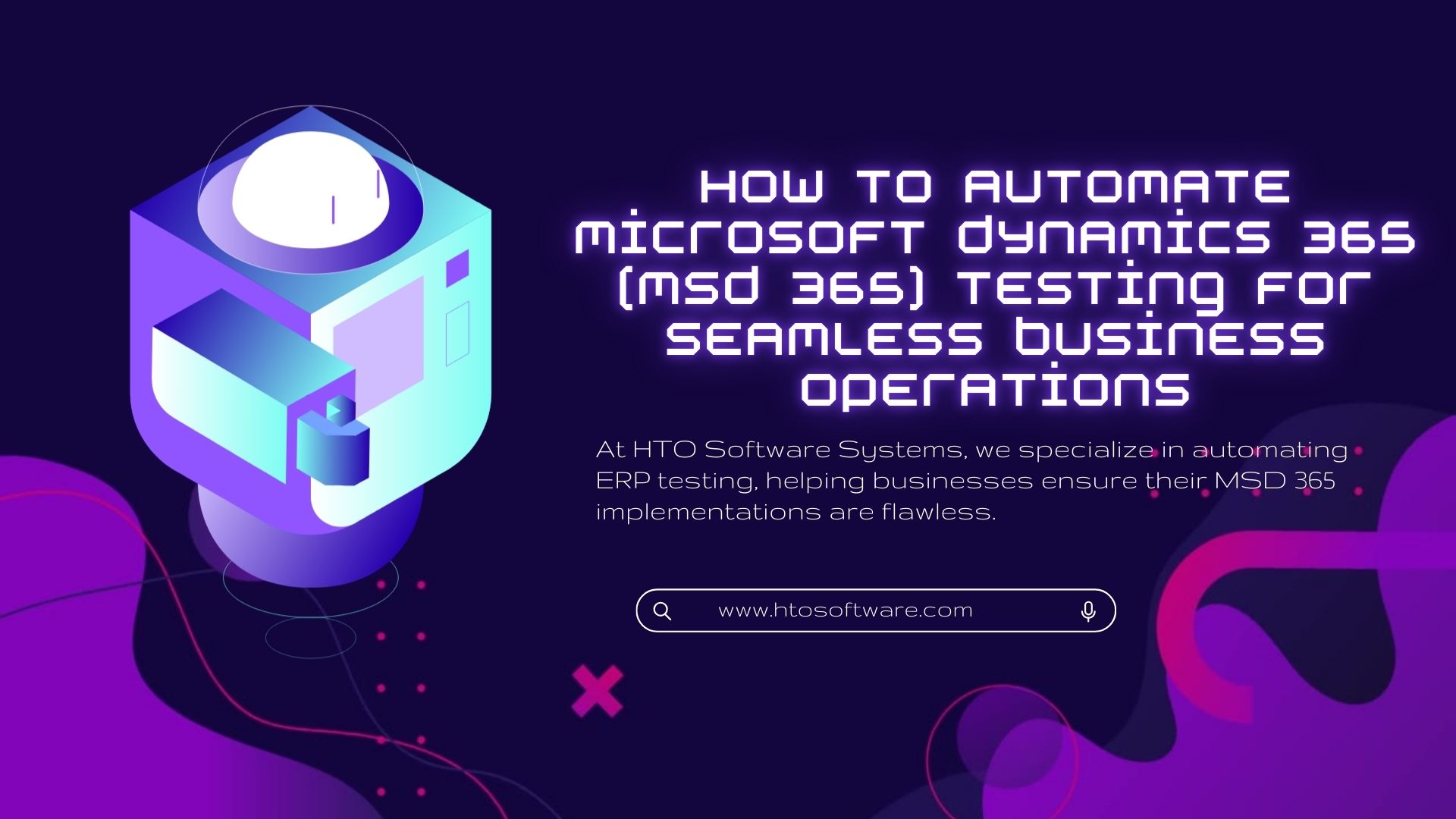In today's fast-paced business environment, Enterprise Resource Planning (ERP) systems like Microsoft Dynamics 365 (MSD 365) play a crucial role in managing and streamlining business processes. As businesses increasingly rely on these systems for critical operations, ensuring their seamless performance becomes paramount. This is where ERP automation testing comes into play—automating the testing of MSD 365 can save time, reduce errors, and ensure the system's reliability and scalability.
In this blog, we'll dive into the essentials of ERP automation testing, explore how to automate MSD 365 testing, and highlight the benefits that this approach can bring to your business.
Understanding ERP Automation Testing
ERP systems are complex and involve multiple modules such as finance, supply chain, human resources, and customer relationship management (CRM). Testing these systems manually can be time-consuming, prone to human error, and inefficient. ERP automation testing uses specialized tools and frameworks to automate the testing process, ensuring that all modules work together seamlessly and meet business requirements.
Why Automate MSD 365 Testing?
- Complexity of MSD 365: Microsoft Dynamics 365 is a comprehensive ERP solution that integrates various business functions. The complexity of its workflows and the volume of data processed make manual testing challenging.
- Frequent Updates: MSD 365 receives regular updates from Microsoft. Automating the testing process ensures that your system remains compliant and functional after each update, reducing the risk of unexpected issues.
- Efficiency and Accuracy: Automation enables rapid and consistent testing of repetitive tasks, reducing the chances of human error. This increases the accuracy and reliability of your testing process.
- Cost-Effectiveness: While initial automation setup may require investment, it ultimately leads to cost savings by reducing the need for extensive manual testing efforts and catching issues early in the development cycle.
How to Automate MSD 365 Testing
Define Your Testing Strategy
Start by defining a comprehensive testing strategy that outlines the scope, objectives, and key areas of focus. Identify the critical business processes within MSD 365 that require automation. This might include order processing, invoicing, inventory management, and CRM activities.
Choose the Right Automation Tools
Selecting the right automation tools is crucial for successful MSD 365 testing. Some popular tools for ERP automation testing include:
- Selenium: A widely-used open-source tool for automating web applications. It can be integrated with other tools to automate MSD 365's web interface.
- Microsoft Power Automate: A robust tool for automating workflows within MSD 365, allowing you to create and test automated processes.
- TestComplete: A commercial tool that supports web, desktop, and mobile applications, making it suitable for automating complex MSD 365 scenarios.
Create Automated Test Scripts
Once you have selected your tools, the next step is to create automated test scripts. These scripts should cover various scenarios, including positive, negative, and boundary testing. Ensure that the scripts are modular, reusable, and easy to maintain.
Implement Continuous Integration (CI)
Integrate your automated tests into a CI pipeline. This allows you to automatically run tests whenever there are changes in the MSD 365 environment, ensuring that new updates or customizations do not break existing functionality.
Conduct Regression Testing
Automation is especially beneficial for regression testing—testing existing functionalities to ensure they work after changes are made. With automated regression tests, you can quickly verify that your MSD 365 system remains stable and functional after updates.
Monitor and Report
Monitoring and reporting are critical components of automation. Use tools like Azure DevOps or Jenkins to monitor your automated tests and generate detailed reports. These reports provide insights into test results, helping you identify and address issues promptly.
Benefits of Automating MSD 365 Testing
- Reduced Testing Time: Automation significantly reduces the time required for testing, allowing your team to focus on more strategic tasks.
- Improved Accuracy: Automated tests are consistent and repeatable, minimizing the risk of human error.
- Enhanced Scalability: Automation allows you to test large datasets and complex workflows without the need for additional resources.
- Cost Savings: By catching defects early in the development process and reducing manual testing efforts, automation leads to long-term cost savings.
- Better Compliance: Automated testing ensures that your MSD 365 system remains compliant with industry standards and regulations.
Conclusion
ERP automation testing, especially for a robust system like Microsoft Dynamics 365, is not just a technical necessity but a strategic advantage. By automating MSD 365 testing, businesses can ensure that their ERP systems are reliable, scalable, and ready to support their growth. The right tools, strategy, and approach can help you unlock the full potential of your ERP system, leading to smoother operations and better business outcomes.
At HTO Software Systems, we specialize in automating ERP testing, helping businesses ensure their MSD 365 implementations are flawless. Contact us today to learn how we can help you automate your testing processes and achieve seamless business operations.

